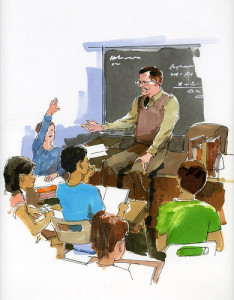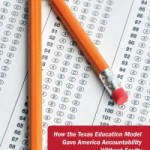“Tastes change; truths become clichés; whole art forms disappear. Even the greatest art’s triumph over death is risibly temporary. A novelist might hope for another generation of readers—two or three if lucky—which may feel like a scorning of death; but it’s really just scratching on the wall of the condemned cell. We do it to say: I was here too.” — Julian Barnes, Nothing to be Frightened Of
 A few years ago I decided to read Julian Barnes’s highly acclaimed book Nothing to be Frightened Of, a collection of learned reflections that I think can be fairly characterized as a literary exercise to escape thanatophobia (the fear of death).
A few years ago I decided to read Julian Barnes’s highly acclaimed book Nothing to be Frightened Of, a collection of learned reflections that I think can be fairly characterized as a literary exercise to escape thanatophobia (the fear of death).
Barnes is a brilliant writer and his reflections give voice to a tender godlessness that is both sobering and soothing. The perpetual theme of his work is the ephemeral nature of everything—consciousness, human life, the universe itself. Nothing lasts.
And yet…don’t teachers teach with the expectation that something from the classroom lasts? Don’t we hope our ideals and efforts act as a benign germ, inspiring students to do something substantive with their lives? Even if Barnes is correct in a cosmic sense, don’t teachers teach because we feel that there are some things in life that can only be accomplished by the touch and guidance of another human being?
I know I have always felt this way. Teachers, I always assumed, were like priests or parents or psychiatrists. They are beyond the reach of technological replacement. Right?
For those of you who share my confidence, I would like to direct you to a captivating article entitled, “The End of the University as we Know It” that appeared last year in the January 2013 edition of American Interest Magazine. The opening paragraph reads as follows:
“In fifty years, if not much sooner, half of the roughly 4,500 colleges and universities now operating in the United States will have ceased to exist. The technology driving this change is already at work, and nothing can stop it. The future looks like this: Access to college-level education will be free for everyone; the residential college campus will become largely obsolete; tens of thousands of professors will lose their jobs; the bachelor’s degree will become increasingly irrelevant; and ten years from now Harvard will enroll ten million students.”
You will forgive me if I am not overjoyed by this prediction. And it’s not just because I also happen to work at a public university teaching political science.
My reaction is both primal and reflexive: Technology is a tool…not a replacement for the touch of a teacher’s humanity.
I completely understand the argument, though…a digital revolution is a revolution precisely because is uproots the way we do things in everyday life—commerce, travel, communication.
Why should our world of education be any different?
After all, just one-hundred years ago, 90% of American jobs were in agriculture. Cars displaced horse and buggy drivers. ATM machines put more than a few bank tellers out of a job. Legislators and policy-makers may ask, “Why should teachers and education be insulated from the arc of human history and the forces of “creative destruction” spurred by the technological revolution of our age?”
The reason is that education is not, and never has been, a product.
Education, to quote another extraordinary teacher, my father, “is a process.” Technology can be a tool and an extraordinary one…by all means let’s use video in our lectures and Khan Academy footage to supplement our lessons. Let’s go online to check our grades and communicate with parents. Let’s Tweet assignments to every student and create Facebook pages where we post our power points and list helpful classroom hints.
However, I passionately submit that educating a student is much more analogous to parenting a child than it is to purchasing a cheeseburger or buying an i-pod.
Ask yourself this question: would you ever turn over the rearing of your child to a computer program…no matter how advanced the technology may be? Or think of it this way: are the habits and values and principles that constitute good parenting any different now than they were before the microchip was invented? Or before the Industrial Revolution? Think of the great teachers of the West—Socrates, Seneca, Jesus—or even great teachers of the modern world—Annie Sullivan or Jaime Escalante. I would argue that their humanity was their greatest teaching tool and that their aims went far beyond a test score.
No app can love a child. No technological wizardry can make students feel that a teacher cares about them and wants to know their story and remedy their difficulties. No online exercise will ever look into a student’s eyes and ask them, “What’s wrong,” or tell them, “I know you can do better,” or respond with compassion to the tears that often well up in their eyes as a result of the broken homes so many of our students come from.
I think back on some of the teachers who changed my life…who inspired me to think big thoughts, read difficult texts, or learn how to make a friend on the kindergarten playground and I know my life is better and richer and more complete because they—a living breathing human being–stood in front of a classroom.
The best classrooms in my life were imbued with a strong sense of personalized humanity. Sometimes that meant calming me down after an emotional meltdown in kindergarten. Sometimes that means being brutally honest. In my first semester of college I had a first-year professor who taught a class on political philosophy. He was from Argentina and he was absolutely brilliant. When he passed back our first papers I couldn’t even see my own writing…the entire thing was covered in red ink and post-it notes. At the end of the paper he didn’t even bother giving me a grade. He simply wrote me a note that concluded with these words: “In conclusion, it is obvious to me that you are intellectually constipated.”
An online program will not concern itself with the nuances of a student’s emotional state and it certainly would never take on the persona of tough-love by telling a student that he or she is intellectually constipated. But if we lose the humanity of the learning experience, then all the common core standards in the world, all of the “IT” razzmatazz won’t make any difference in the end.
Education must be more than the efficient delivery of skills and knowledge to our students. Teachers must also be models for life and living for a student population that often lacks these models in their everyday lives. We must demonstrate devotion and affection. We must show what’s possible in life when we all walk down the path of genuine inspiration. I am reminded of perhaps my favorite quote of the Enlightenment by Sir Isaac Newton who remarked, “If I have perhaps seen further than others, it is only because I have stood on the shoulders of giants.” Teachers of today must be the shoulders upon which our students stand to see that which they cannot see for themselves: the possibilities of life when one is truly and passionately educated.
Indeed, I am referring to more than a lawyer simply learning how to argue a case…more than an engineer designing a bridge…more than a teacher effectively teaching to a standard.
I am referring to the most basic problem of life: the problem of how to live and be a human being.
Beyond the routines we keep, the errands we run, and the minutiae that all-too-often defines us, there are extraordinary moments that are possible in each and every life that sits in a classroom. The defining article of my faith as an educator, my creed and my dogma wrapped into a single statement is this: education can and should be the vessel for finding these extraordinary moments that are littered throughout our lives. And the teachers who help us find these moments are not simply practitioners of information…they are artists of human transformation!!!
And no technology or vogue technique can ever change this.



